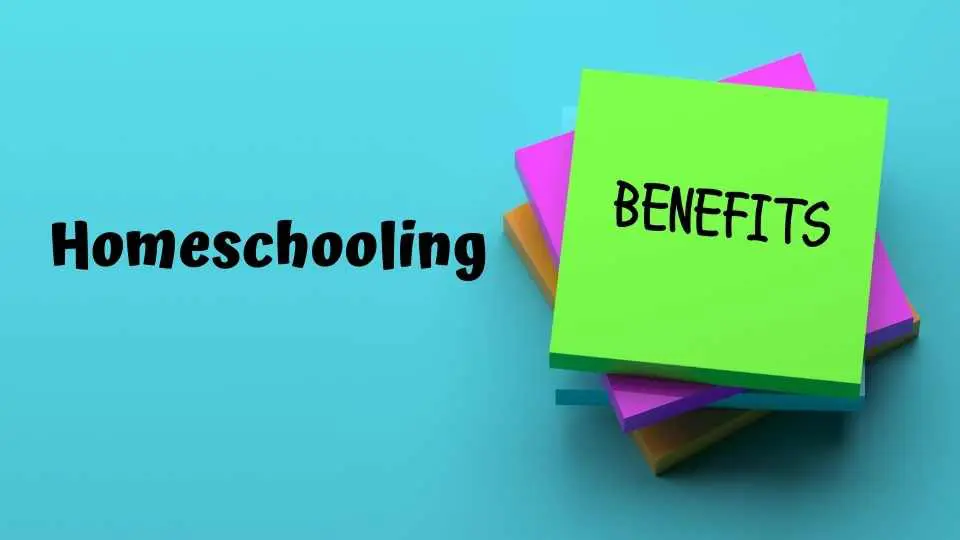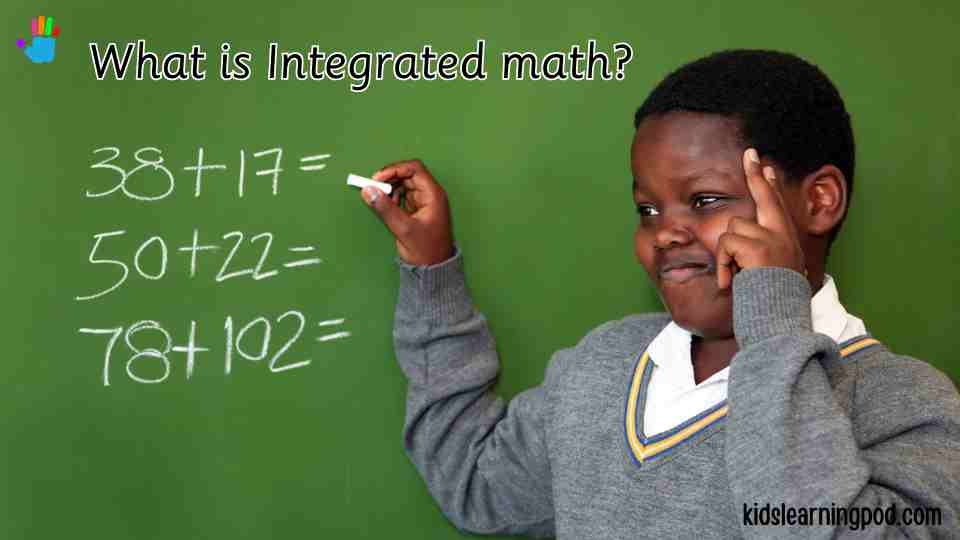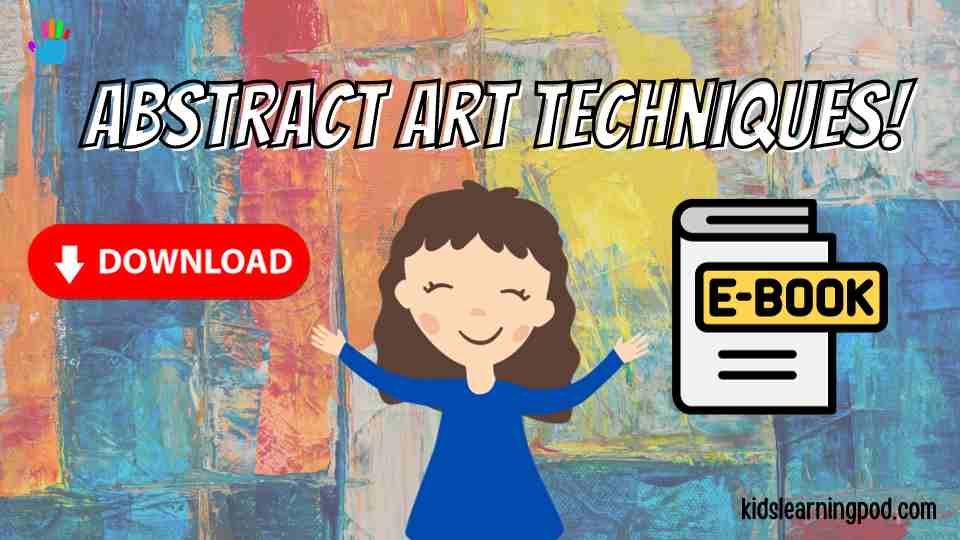What are the 12 Core Early Childhood Education Units?
Early childhood education is a crucial phase in a child’s development. It lays the foundation for lifelong learning, social interaction, and emotional well-being. To provide effective education to young children, educators need to have a deep understanding of the 12 Core Early Childhood Education Units. These units cover various aspects of child development, curriculum planning, and special needs education. In this article, we will explore each of these units in detail and discuss their importance in shaping the future of early childhood education.
Understanding Early Childhood Education
Early childhood education refers to the period of learning that occurs in a child’s life from birth to around eight years of age. It is a critical time when children’s brains are highly receptive to learning, making it essential to provide a nurturing and stimulating environment.
Age Group
Early childhood education primarily focuses on children aged 3 to 8 years old. This stage includes preschool and primary school years.
Goals
The primary goals of early childhood education are to foster a child’s physical, emotional, social, and cognitive development. Educators aim to create a supportive and engaging environment that helps children reach their full potential. Learning What are the 12 Core Early Childhood Education Units? will help achieve you your goals soon.

Core Units Explained
| 12-Core Units | Description of Units |
|---|---|
| Child Development | Understanding the multifaceted ways children grow is crucial to ensure that teaching methods align with their evolving needs. Recognizing developmental milestones and stages is essential for effective education. |
| Child Safety and Health | In addition to academic learning, instilling habits that promote lifelong health and safety is imperative. This unit focuses on creating a secure and healthy environment for children, emphasizing nutrition, safety guidelines, and first-aid skills. |
| Early Literacy | Early literacy forms the foundation for a lifetime of learning and comprehension. Educators teach children fundamental reading and writing skills, nurturing a love for books and storytelling. |
| Creative Expression | Fostering creativity in children promotes self-esteem, innovation, and emotional well-being. This unit encourages artistic and imaginative expression, enabling children to express themselves through various forms of art and play. |
| Family and Community Relations | Education extends beyond the classroom. Involving families and communities enhances learning outcomes. This unit emphasizes building strong relationships with parents and the community to create a supportive network for children’s education. |
| Classroom Management | A well-managed classroom ensures a seamless learning experience, free from disruptions. Educators learn effective strategies to create a structured and conducive environment that promotes focus and engagement. |
| Special Education | In an inclusive society, addressing diverse learning needs is paramount. Special education equips educators with the knowledge and skills to provide tailored support and accommodations for children with special needs. |
| Cultural Diversity | In today’s globalized world, understanding and valuing diverse cultures is essential. This unit promotes cultural awareness and encourages educators to celebrate differences, fostering an inclusive and respectful learning environment. |
| Mathematics and Science in Early Childhood | Building a strong foundation in mathematics and science during early childhood sets the stage for advanced learning in later years. This unit introduces basic mathematical concepts and scientific exploration to ignite curiosity and problem-solving skills. |
| Language and Communication Skills | Effective communication skills are essential in our interconnected society. This unit focuses on developing language proficiency, promoting clear and articulate communication, and enhancing listening and comprehension abilities. |
| Social and Emotional Learning | Social and emotional learning is as vital as academic prowess. Educators help children develop emotional intelligence, empathy, and resilience. This unit emphasizes the importance of nurturing well-rounded, empathetic individuals. |
| Evaluation and Assessment | Continuous assessments are the guiding compass for educators. Regular evaluations help identify a child’s strengths and areas that need improvement. Educators use assessments to tailor their teaching methods and provide personalized interventions when necessary. |
Unit 1: Child Development
Child development is a fundamental aspect of early childhood education and first step when we learn What are the 12 Core Early Childhood Education Units? It encompasses the physical, cognitive, emotional, and social growth that children undergo from infancy through early childhood. Understanding these various domains of development is crucial for educators, as it forms the basis for tailoring effective teaching methods to the unique needs of each child.
- Physical Development: This involves the physical changes and milestones that children achieve, including the development of motor skills, such as crawling, walking, and fine motor skills like grasping objects. Educators must recognize and encourage these developments, creating a supportive environment that allows children to explore and strengthen their physical abilities.
- Cognitive Development: Cognitive development encompasses the growth of intellectual abilities, problem-solving skills, and memory. It’s essential for educators to understand the cognitive stages children go through, from simple sensory-motor interactions to more complex thinking processes. Providing age-appropriate activities and challenges can stimulate cognitive growth.
- Emotional Development: Emotional development involves recognizing, understanding, and managing emotions. Educators play a vital role in helping children develop emotional intelligence, empathy, and self-regulation. They must create a safe and nurturing environment where children can express their emotions and learn to cope with them positively.
- Social Development: Social development centers on a child’s ability to interact with peers, form friendships, and develop social skills. Early childhood educators should create opportunities for children to engage with one another, fostering cooperation, communication, and empathy.
Unit 2: Health and Safety
Health and safety are paramount in early childhood education. Educators must ensure that children are in a secure and healthy environment. This unit covers a wide range of topics:
- Nutrition: Educators should be well-versed in nutritional guidelines to provide balanced meals and snacks that support a child’s growth and development. Understanding dietary requirements for different age groups and potential allergies is essential.
- First Aid and Emergency Preparedness: Educators should have basic first aid training to handle minor injuries. Additionally, they must be prepared for emergency situations, such as fires, natural disasters, and medical emergencies, ensuring the safety and well-being of the children in their care.
- Safe Learning Environment: Creating a safe and hazard-free environment is crucial. Educators should regularly assess the physical space, ensuring it’s free of potential dangers. This includes securing furniture, ensuring proper ventilation, and maintaining cleanliness to prevent the spread of illness.
Unit 3: Curriculum Planning
Curriculum planning is the process of designing a comprehensive educational program that caters to the developmental needs of young children. Educators need to consider the following elements:
- Learning Objectives: Establishing clear and achievable learning objectives for each age group and individual child, tailored to their developmental stage.
- Age-Appropriate Activities: Designing activities that align with the developmental level of the children. For example, providing sensory-based activities for infants and more complex problem-solving tasks for older preschoolers.
- Assessment and Feedback: Regularly assessing a child’s progress and adjusting the curriculum accordingly. Educators should provide feedback to children and parents, emphasizing both strengths and areas that need improvement.
- Incorporating Play: Play-based learning is essential, as it fosters creativity, problem-solving, and social skills. Curriculum planning should include ample opportunities for children to engage in play.
Unit 4: Child Psychology
Child psychology is a critical area for early childhood educators. It involves understanding the emotional and behavioral aspects of children’s development:
- Emotional Intelligence: Educators learn how to recognize and support children’s emotional development, teaching them to understand and manage their feelings. This involves activities like storytelling and role-play that allow children to express emotions.
- Behavioral Challenges: Child psychology also covers recognizing and addressing behavioral challenges. Educators need to develop strategies to deal with common issues like temper tantrums, separation anxiety, and sibling rivalry.
- Social Skills: Building social skills is a fundamental part of child psychology. Educators help children develop the ability to cooperate, share, and communicate effectively with peers.
Unit 5: Play-Based Learning
Play-based learning is an approach that engages children in structured, age-appropriate activities that stimulate learning through play. The emphasis is on creativity, problem-solving, and social skills. Key elements include:
- Creative Play: Children engage in creative activities like drawing, building, and role-playing, which enhance their imagination and problem-solving abilities.
- Problem-Solving: Play-based learning offers opportunities for children to tackle challenges, make decisions, and learn from their experiences.
- Social Interaction: Children learn how to collaborate, share, and communicate effectively while playing with their peers. This supports their social development.
- Hands-On Learning: Play-based learning encourages hands-on exploration, allowing children to discover and understand concepts through direct experience.
Unit 6: Cultural Awareness
Cultural awareness is a vital aspect of early childhood education, promoting diversity and inclusivity:
- Understanding Different Cultures: Educators learn about various cultures, traditions, and languages to create an inclusive environment. They understand that children come from diverse backgrounds and should feel respected and valued.
- Celebrating Diversity: Cultural awareness involves celebrating cultural festivals, sharing stories, and introducing children to different customs and traditions. This fosters a sense of curiosity and respect for other cultures.
- Bilingual Education: Educators may incorporate bilingual teaching methods to support children from non-English-speaking backgrounds, ensuring they can learn effectively.
Unit 7: Special Needs Education
This unit equips educators to work with children who have special needs:
- Understanding Disabilities: Educators learn about different types of disabilities, such as autism, ADHD, and speech disorders, to better support these children.
- Adapted Teaching Methods: They develop strategies and teaching methods tailored to the specific needs of each child, ensuring that all children receive a high-quality education.
- Inclusion: Inclusion is a key principle of special needs education. Educators aim to create an inclusive environment where all children can participate in activities and learn together.
- Collaboration with Specialists: Educators often work closely with specialists, such as speech therapists or occupational therapists, to ensure the best support for children with special needs.
Unit 8: Parental Involvement
Parental involvement is essential for a child’s educational journey:
- Building Positive Relationships: Educators aim to build positive relationships with parents, fostering trust and open communication. This partnership is critical for a child’s success.
- Engagement in Learning: Educators encourage parents to actively engage in their child’s learning by providing them with information, resources, and opportunities to participate in school activities.
- Progress Communication: Regular communication about a child’s progress and achievements helps parents stay informed and involved in their child’s education.
Unit 9: Language Development
Language development explores how children acquire language skills:
- Speaking and Listening: Educators promote speaking and listening skills, encouraging children to express themselves and actively engage in conversations.
- Early Literacy: Introduction to early literacy activities, such as storytelling, reading, and writing, is part of language development.
- Vocabulary and Communication: Building a rich vocabulary and effective communication skills are essential for children to express themselves and understand the world around them.
Unit 10: Motor Skills
This unit focuses on enhancing children’s motor skills:
- Fine Motor Skills: Fine motor skills involve activities like using utensils, writing, and drawing. Educators help children improve their hand-eye coordination and dexterity.
- Gross Motor Skills: Gross motor skills include activities like running, jumping, and climbing. Educators create opportunities for physical play and exercise to develop these skills.
- Physical Coordination: Motor skills are essential for physical development and coordination, which are vital for various daily activities.
Unit 11: Social and Emotional Development
Social and emotional development centers on nurturing emotional intelligence and social skills:
- Emotional Regulation: Children learn to recognize and manage their emotions, developing self-control and resilience.
- Empathy: Educators help children understand and empathize with others, fostering positive relationships and conflict resolution skills.
- Social Interactions: Activities and group play encourage social interactions, promoting teamwork and effective communication.
Unit 12: Assessment and Evaluation
Assessment and evaluation involve methods for tracking a child’s progress:
- Observations: Educators regularly observe children’s behavior and engagement in various activities to gauge their development.
- Tests and Assessments: Age-appropriate tests and assessments help educators measure cognitive and academic progress.
- Developmental Milestones: Understanding developmental milestones and how children reach them is crucial for evaluating their progress.
Benefits of Learning these Core Units
Impact on Early Childhood Educators
Having knowledge of these core units makes educators more effective in providing a well-rounded education to young children. It also enhances their career prospects.
Impact on Children
Children benefit from educators who are well-versed in these core units, as it ensures a more enriching and supportive learning experience.
How to Pursue a Career in Early Childhood Education
Pursuing a career in early childhood education is not only a rewarding endeavor but also plays a crucial role in shaping the future of young minds. This subheading explores the educational and practical steps to embark on this fulfilling journey.
Do you have a calling to shape the formative years of young learners? If you’re considering the fulfilling journey of becoming a certified early childhood educator, this comprehensive guide is here to provide you with the necessary steps to kickstart your career.
Step 1: Begin with In-Depth Research
Your first step on the road to certification is research. It’s essential to lay a solid groundwork by understanding the specific requirements in your region, state, or country. Certification criteria can differ significantly, so familiarize yourself with the guidelines, prerequisites, and standards applicable to your locale.
Step 2: Select an Accredited Program
Choosing the right educational program is critical. Opt for a program that not only holds recognition but also covers the 12 crucial early childhood education units. Accredited programs offer a balanced blend of high-quality education and professional recognition, setting you on the path to a successful career in early childhood education.
Step 3: Immerse Yourself in Comprehensive Coursework
Becoming a certified early childhood educator requires a diverse skill set. You’ll engage in a mix of theoretical knowledge and hands-on training. As you dive into your coursework, you’ll gain valuable insights into real classroom scenarios, explore the depths of child psychology, and acquire effective teaching methodologies. This holistic approach readies you for the wide array of challenges you’ll encounter in the real world of education.
Step 4: Successfully Pass Required Examinations
Certification usually involves specific examinations to assess your understanding and abilities. The nature of these tests may vary depending on your location, but they serve as a testament to your proficiency and readiness to embark on your teaching career. Successfully passing these examinations demonstrates your commitment to the profession and your capability to provide high-quality education to young children.
Step 5: Gain Practical Experience
Theoretical knowledge alone is not enough. To excel as an early childhood educator, practical experience is essential. This often entails student teaching stints, where you immerse yourself in real classroom settings. Through these experiences, you’ll apply your acquired knowledge, hone your teaching strategies, and gain valuable insights into the diverse needs of children. Practical exposure enhances your ability to create a nurturing and engaging learning environment.
Step 6: Submit Your Certification Application
After diligently meeting all the criteria, it’s time to take the next crucial step – submitting your application for certification. Ensure that all your documents, coursework records, and experience details are meticulously organized and presented. Additionally, stay vigilant about any requirements for periodic renewal, as staying updated is vital in this ever-evolving field of early childhood education.
Education and Training Requirements
To become an early childhood educator, you’ll need to meet specific educational and training requirements:
- Educational Background: Start by earning a high school diploma or equivalent. From there, consider pursuing an associate’s or bachelor’s degree in early childhood education, child development, or a related field. These degrees provide a strong foundation in child psychology, curriculum development, and teaching methods.
- Certifications: Many states require early childhood educators to obtain the appropriate certification or licensure. These certifications vary by location but often involve coursework, exams, and practical experience. For example, the Child Development Associate (CDA) credential is widely recognized in the field.
- Continuing Education: The field of early childhood education is continuously evolving. Consider ongoing professional development and further education to stay up-to-date with the latest teaching strategies and best practices.
Job Opportunities
Early childhood educators have a range of job opportunities to choose from:
- Preschool Teachers: These educators work with young children typically aged 3-5, preparing them for kindergarten by teaching basic skills and socialization.
- Kindergarten Teachers: Kindergarten teachers instruct children aged 5-6 in foundational academic subjects.
- Childcare Center Directors: Directors oversee the daily operations of childcare centers, ensuring that the facility, staff, and programs meet the highest standards.
- Special Education Teachers: Some early childhood educators specialize in working with children with disabilities or special needs, providing tailored support and accommodations.
- Home-Based Providers: You can also establish your own home-based daycare or preschool, which offers more flexibility and independence.
Salary and Career Growth
The salary and career growth prospects in early childhood education vary based on factors like location, level of education, and years of experience. Here’s what to consider:
- Salary: On average, early childhood educators earn a median annual salary that ranges from $30,000 to $45,000. However, factors such as the type of institution and geographic location can influence earnings.
- Career Growth: Early childhood educators can advance their careers by taking on leadership roles, such as becoming a director or administrator at a childcare center or preschool. Continuing education and professional development can open doors to higher-paying positions and increased responsibility.
- Impact and Reward: Beyond financial rewards, the true satisfaction of a career in early childhood education comes from the profound impact you have on young lives. Every day, you play a vital role in nurturing a love for learning and setting the stage for a child’s future success.
Conclusion
The 12 Core Early Childhood Education Units are the building blocks of a successful early education system. Educators who master these units are better equipped to provide young children with a solid educational foundation. This, in turn, benefits the children themselves, as they receive a comprehensive and supportive learning experience. Courses can be found at this link.
For those considering a career in early childhood education, it is a rewarding and impactful profession. By acquiring knowledge in these core units and continuing to develop their skills, educators can shape the future of our youngest learners, setting them on a path to success.





